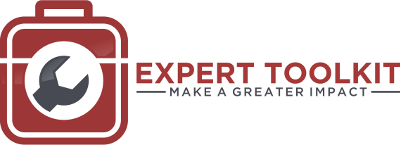Driving business transformation: Are your expectations realistic?
One of the most critical pillars underpinning a business initiative are the expectations of stakeholders and the program leadership team. Too often, the focus of scrutiny when planning and scoping an initiative is on the assumptions being made - what assumptions are we making and are they sound? This is absolutely important and should be done, but consider also conducting a formal "expectations review" to help bring a different perspective, uncover blind-spots, identify risks and save your program from potential death traps known as poor expectations!
So how do poor expectations get created? There are many ways - but let's take an obvious example:
Business Sponsor “We need the solution to launch by July 1st”
Response: “OK, we’ll plan around a July 1 launch”
What tends to happen now is the business sponsor walks away feeling like his July 1st date is achievable, mentally locks it in and starts sharing this date upwards with more senior executives, customers and suppliers. The start of no-win situation has begun. Very soon afterwards, the pressure builds as people assume the date is a must-make but realize it will unlikely be met. Steering committees start to get heated, morale drops, team members suffer and the date eventually starts sliding to the right. Ironically, the final, actual launch date will typically end up being later than what could have been achieved but for all the negative consequences of the poor expectation setting up front. Let's try a different approach:
Business Sponsor “We need the solution to launch by July 1st”
Response: “I understand the sense of urgency with this program. We will absolutely deliver it as fast as possible, but I want to ensure that we have realistic expectations so that we can be successful”.
An interesting characteristic of expectations is that they are generally more easily identifiable than assumptions, making them easier to test and modify quickly – before the program has moved out of planning stages. Quite often, bad assumptions don’t emerge until after the program has failed when a “post-implementation review” exercise is conducted. Sure, it may help the next program – but we want this program to be successful.
In our experience of seeing and delivering major transformation initiatives within and across large corporations, we believe there are 8 “expectation areas” that should be reviewed and tested during the planning and scoping stage. A range of sources and people should be consulted and involved in reviewing these expectations to ensure they are realistic and setting the program (and team) up for success:
- Duration expectations: Do we have realistic goals on how long this program will take? How long have similar programs taken elsewhere?
- Resource & effort expectations: How many full time resources are required to get it done? Do we have enough dedicated people? Are we inadvertently expecting some people to work on the program at the same time as doing their full-time operational job?
- Risk & complexity expectations: Are we realistic about the level of risk and complexity we are under taking? Are we over simplifying any aspect of the program?
- Skill & experience expectations: Do we have realistic expectations about the skills and experience required of the team? Is every role filled by a suitably qualified individual?
- Budget & benefit expectations: Are we grounded in a realistic budgetary expectation for the initiative? Are we over promising what will be delivered by the program and when? Are we too aggressive on budget? Have we allowed enough buffer?
- Accountability expectations: Are team members clear on what they are accountable for? Have we been clear enough on lines of accountability and responsibility?
- Distraction & disruption expectations: Are we realistic on how much disruption this will cause to the business during the program and after the change has occurred? Are we setup to manage this level of disruption and distraction competently? How are we managing the impact on our people?
- Technology and data expectations: Is the technology robust and proven or are we on the leading edge? Are we being realistic about how "smooth and easy" the technical development side will go? Are we underestimating the time and complexity associated with any data migration or clean-up that needs to occur?
Use the above as a framework of sorts when planning or scoping your next initiative. A good way to utilize the 8 dimensions is in a workshop setting with a range of stakeholders and team members - use it as a way to ensure your expectations are grounded in reality before you get too far into your program.
